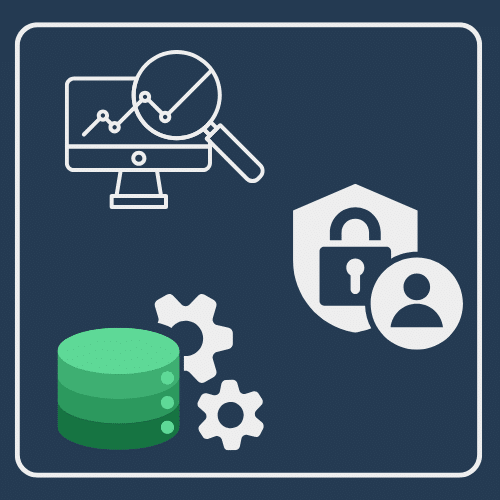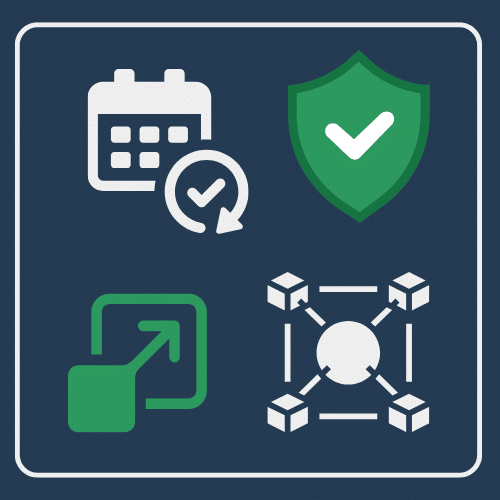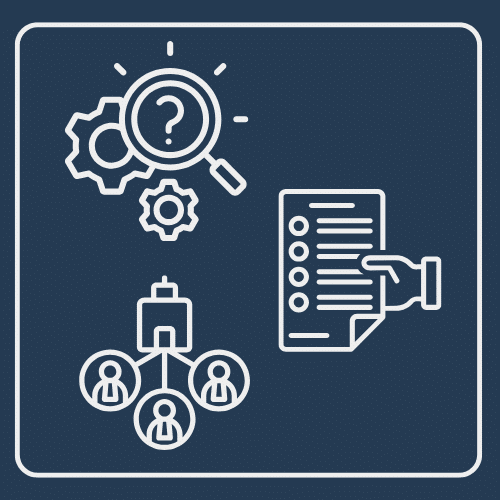SAP Datasphere : Data Warehouse Solution Guide
You are here : Home " SAP Guide " SAP Solutions "SAP Datasphere
SAP Datasphere is SAP's cloud platform for data management and transformation.
It enables companies to create a unified, secure and governed environment for accessing, modeling and sharing data from multiple sources, both internal and external to SAP.
It's SAP's direct response to the challenges of modern data governance: exploding volumes, business silos, system complexity, increased needs for real-time analytics.
With SAP Datasphere, the objective is clear: end-to-end data orchestrationwithout duplicating, without impoverishing, while respecting the original business context.
The promise? To give companies the means to connect their SAP (and non-SAP) systems, enrich their models, and serve business teams with reliable, contextualized and actionable data.
What is SAP Datasphere?
SAP Datasphere is SAP's cloud-native data warehouse platform, designed to enable companies to manage their data in a unified, secure and governed environment.
But unlike a simple data lake or traditional ETL solution, SAP Datasphere goes much further.
It's a data management system in service mode, enabling you to :
- connect SAP and non-SAP sources,
- model data without duplicating it,
- maintain the business context of SAP data,
- easily share enriched datasets with business teams or BI tools.
A strategic foundation for enterprise data transformation
The idea is no longer to "take out" SAP data and reprocess it elsewhere, but to add value at source, by intelligently combining it with other systems (cloud, legacy, business applications, etc.).
SAP Datasphere thus becomes an intelligent data hub, where governance, quality and security are managed natively.
A direct evolution of SAP Data Warehouse Cloud
SAP Datasphere is in fact the evolution of SAP Data Warehouse Cloud.
It inherits its technical foundations, but with a much richer layer of functionality, notably around :
- semantic modeling,
- data cataloguing (via Collibra),
- integration of third-party tools such as Databricks or OpenAI,
- traceability and unified governance.
SAP Datasphere is part of SAP's "data fabric" strategy: connect, orchestrate, govern, exhibit.
And, above all, to stop pitting IT and business against each other, and create a common, secure, activatable playground.
Technical components
SAP Datasphere is based on a modern cloud architecture, designed for scalability, security and interoperability with external tools.
It is made up of several functional bricks which, together, cover the entire data value chain.
SAP Datasphere is more than just a data warehouse.
It's a complete platformat the crossroads of data engineering, governance and business enhancement.
Connections
The power of SAP Datasphere lies largely in its ability to connect to a multitude of systems - SAP or non-SAP - while maintaining data consistency and security.
Native SAP connections
SAP Datasphere offers optimized connectors for all SAP products, facilitating data access without duplication:
SAP S/4HANA
SAP BW/4HANA and SAP BW classic
SAP ECC (via CDS views or classic tables)
SAP HANA (on-prem or cloud)
SAP Analytics Cloud for the return
These connectors ensure that the business context (data types, units, hierarchies), thus avoiding the loss of information often encountered in conventional extractions.
Connections to non-SAP sources
SAP Datasphere can also connect to numerous third-party sources:
- Databases : PostgreSQL, Oracle, SQL Server, BigQuery, Snowflake...
- Cloud systems : AWS S3, Google Cloud Storage, Azure Blob, etc.
- Data science and machine learning tools : Databricks, Jupyter, Python, etc.
These connections are usually made via OData, JDBC or secure APIs.
The platform makes it possible to create hybrid flows between SAP and non-SAP data, in a fluid, governed way.
Integrations with partner solutions
SAP has formed several strategic partnerships to extend Datasphere's capabilities:
- Collibrafor data governance and cataloguing
- Databricksfor high-volume processing and AI
- OpenAIfor AI and NLP use cases applied to business data
Thanks to its advanced connection capabilities, SAP Datasphere becomes a true data orchestration point, at the heart of modern data architecture.
Governance, architecture and cloud-native power
SAP Datasphere is more than just a storage and modeling tool.
It's a strategic platform designed for large enterprises, in a cloud-first, governance-by-design context, open to technology partners.
Data governance and traceability
SAP Datasphere natively integrates advanced governance functionalities, essential for large enterprises:
- Data lineage visualization of the data path, from source to consumption.
- Roles and granular rights precise control over access (read, write, share) by role, by "space", or even by level of granularity (data line).
- Audit and compliance access logging, versioning and management of sensitive data.
Integration with Collibra enriches this governance with cataloguing, business glossary and unified compliance policy functionalities.


Scalable, cloud-native architecture
Deployed on SAP BTP (Business Technology Platform), Datasphere benefits from a :
- multi-tenantsecure, always up-to-date,
- scalablewith classic or Nearline (NSE) HANA storage,
- interoperablehosted on hyperscalers such as AWS, Azure or GCP.
This avoids cumbersome administration, while ensuring the performance, availability and security of your environments.
SAP BW migration: a smooth transition
With SAP BW Bridgeit is now possible to :
- reuse up to 70 % of existing BW objects,
- speed up migration to Datasphere,
- retain the business logic already proven in SAP BW/4HANA.
Ideal for companies already invested in the SAP ecosystem, who want to evolve without starting from scratch.


A powerful integration ecosystem
SAP Datasphere is also open to the outside world. It integrates with :
- Databricksfor IA/ML use cases on massive volumes,
- OpenAIfor augmented analysis or query generation,
- Confluencefor data streaming,
- Collibrafor corporate governance.
SAP Datasphere is more than just a modeling interface.
It's a strategic infrastructuredesigned to support the data transformation of large companies... and connect it to business intelligence.
SAP Datasphere marks a turning point in SAP's data strategy.
It's no longer just a storage platform or a "new BW", but a genuine business data fabric designed for the age of the cloud, real-time analytics and reinforced governance.
By integrating modeling, business context, interoperability with external tools and complete traceability, SAP Datasphere becomes an essential linchpin for any modern data architecture.
But like any powerful solution, getting to grips with it requires a structured learning curve: understanding the spaces, the Business Builder, partner integrations, the role of governance...
PS: Are you an SAP consultant, data analyst or architect who wants to master SAP Datasphere?
Join Expert Training Center, our 100 % online platform dedicated to SAP professionals.
👉 Targeted training, continuous updates, practical case studies from the field.
A single mission: to get you up and running on tomorrow's data tools.
SAP expertise training

👤 Who is this training for? Designed for SAP consultants with previous experience who want to deepen their expertise and move into higher value-added positions.
🎯 What is the purpose of this training? Our aim is to enable you to rapidly upgrade your skills and keep up to date with the latest developments in the field. Combining cutting-edge content, application and personalized follow-up.
🚀 What learning method do you use? Platform integrating training content created by our network of SAP experts, an SAP AI agent, personalized Learning Paths, and support from a community of experts.

